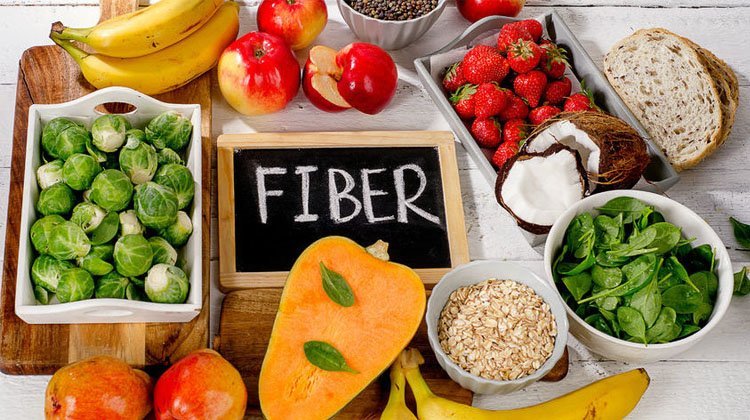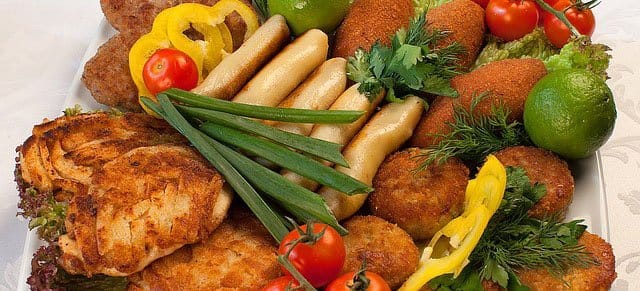Over the years, gut health has become an obsession for people who want to live healthily. And this is something that definitely deserves attention if you want your body and brain functioning optimally. Essentially, your gut is made of a host of microbes, both good and bad ones. While you cannot completely get rid of the bad ones, a balance between the good and bad bacteria is the key to good gut health. Conversely, a wrong mix inside your gut can wreak havoc on your digestive system and cause a series of health issues.
From bouts of constipation and diarrhea to Irritable Bowel Syndrome, obesity, lethargy, brain fog, and more, there are several diseases that are linked with the unhealthy microbiome. Therefore, keeping your gut healthy should be your top priority. The best thing is that ensuring good health is as easy as focusing on the right diet- eating the right foods and avoiding the wrong ones. Here is a list that can help you design a gut-friendly diet.
Foods that you should eat for a healthy gut
The food you eat has a far-reaching impact on the environment of your gut. Amazingly, the right kind of food enables the body to strengthen the microbiome naturally. Eating right is, therefore, the key to having more of the good bacteria in there. Here are some foods that you should eat for a healthy gut.
Probiotics: These are foods high in healthy bacteria that can do wonders for your gut health. Yogurt, kimchi, sauerkraut, miso, kefir, and tempeh are some of the best probiotic foods that you can include in your daily diet. If you cannot have enough of them from food sources, there are supplements that you can rely on.
Prebiotics: Like probiotics, prebiotics is another food group that is good for your microbiome. Essentially, these are the foods that are high in a special kind of fiber that nourishes the good bacteria in your gut. Whole grains, nuts, fruits and vegetables such as oats, lentils, bananas, beans, chickpeas, onions, garlic, and asparagus are some of the best dietary sources of prebiotics.
Honey is also being recognized as a prebiotic, since it has oligosaccharides that can promote the growth of lactobacilli and bifidobacteria, in addition to antimicrobial components which can act synergistically with the probiotics against certain pathogens. Organic, raw honey from Gold Bee and similar sources is supposed to be more potent than processed honey – so make sure to try this.
If you appreciate the healing power of natural ingredients, Nature’s Happiness has all-natural health supplements and extracts derived from medicinal mushrooms.

Dietary fiber: In addition to the fiber found in prebiotics, you should also have plenty of dietary fiber as well. Fiber offers essential vitamins and minerals to the good bacteria in your gut and promotes their growth. Further, it regulates the bowels and relieves the symptoms of chronic constipation. Fruit, vegetables, whole grains, pulses and nuts, and whole grains offer a hefty supply of dietary fiber.
Healthy oils: When it comes to the choice of cooking oils, switch to healthier variants such as virgin olive oil and coconut oil. These variants contain polyphenols, which support the gut-friendly bacteria in your microbiome. So you must absolutely use them for cooking food or in raw salads.
Herbs: Apart from the whole grains, fruits, vegetables, prebiotics, and probiotics, there are certain herbs that can provide extensive benefits for your microbiome. These include fennel, chamomile, ginger, garlic, peppermint, and turmeric. Sneak them into your daily diet as a part of your recipes or have them as digestive herbal teas.
Foods that you should avoid for a healthy gut
Besides eating the right food for promoting the good bacteria in your microbiome, there are certain foods that you should steer clear of. Such foods can result in microbiome imbalances, cause inflammation, and trigger digestive issues as well. Here are the ones that you should avoid.

Animal protein: Although food from animals may have several health benefits, excessive intake may put your gut microbiome out of balance. Foods such as meat, eggs, and dairy are rich in animal protein, which may not be great for your gut. Consume them moderately if you want to derive the best benefits.
Processed and high sugar foods: Another culprit for your gut health is processed foods. These are essentially high in sugar, which feeds the bad bacteria in your gut and helps them grow at a rapid pace. So you should absolutely limit the intake of foods such as pastries, jam, fruit juices, and biscuits.
Fried foods: Like processed foods, fried foods are also bad for your gut health. They are difficult to digest and make your gut bacteria work harder. Rather than oily and fried foods, you should stick to healthier options cooked with techniques such as baking and roasting.
Gluten: Basically, gluten is a type of protein found in grains such as wheat, rye, and barley. Though whole grains are considered gut-friendly, those high in gluten may not be really friendly for your microbiome. Prolonged use can have a harmful effect on gut bacteria. At the same time, people who are gluten sensitive are at high risk and may experience gut problems sooner rather than later.

Alcohol: Another item that should be off your list for avoiding gut-related issues is alcohol. Research studies indicate that excessive consumption of alcoholic drinks can upset the balance of the bacteria in your microbiome and make you sick. Even if you want to drink, follow the rule of moderation.
It’s not just about the diet!
Now that you know about the foods that you should eat and the ones you should skip to stay gut-healthy, you can easily modify your diet. But remember that gut health is not just about diet, it is about a healthy lifestyle as well. Physical activity is important because it ensures diversity in your microbiome and helps you to eliminate the toxins from your system. Additionally, getting good sleep is vital and so is keeping stress at bay. Steering clear of unnecessary use of antibiotics is vital because they are capable of killing the good bacteria along with the ones that cause infections.
A healthy microbiome requires a holistic approach, with a perfect combination of the right diet and a balanced lifestyle. This is something that you should not compromise with because good gut health makes you stronger, healthier and happier. It not only promises a healthy body but a healthy mind as well.


1 comment
Very good articles guys, Thanks!
Comments are closed.